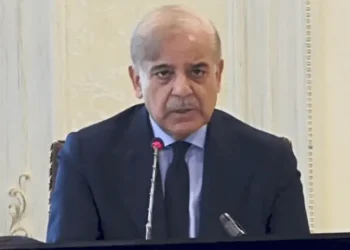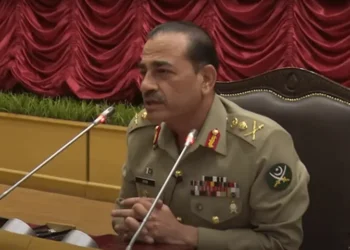ISLAMABAD; In a high-level meeting of the Senate Standing Committee on Climate Change chaired by Senator Sherry Rehman, Pakistan’s alarming vulnerability to climate-induced disasters came under sharp scrutiny. Held amid ongoing monsoon devastation, the meeting brought forward urgent concerns surrounding outdated disaster response systems, unchecked groundwater depletion, and a lack of climate adaptation planning.

Senator Rehman opened the session with a stark warning, noting that between June 26 and July 22, 242 lives have been lost and nearly 600 people injured due to heavy rains and flash floods. “In just the last 24 hours, we lost 21 more lives. This is not a random event—it is climate change in full motion. Pakistan is now ranked number one in climate vulnerability,” she said.
She criticized the destruction caused by encroachments and unregulated construction on natural waterways, citing Saidpur Village and DHA Rawalpindi as tragic examples where lives and infrastructure were lost. “These are no longer natural disasters; these are human-induced tragedies resulting from poor urban planning and systemic neglect,” she stated.
The meeting also addressed Pakistan’s deepening water crisis. Senator Rehman expressed frustration that no government ministry could provide a detailed map or data on the scale of groundwater extraction. The Ministry of Water Resources struggled to answer basic questions on surface water usage, tube well numbers, and recharge capacity. “For a country officially declared water-scarce by the United Nations, the lack of strategic planning and data is appalling,” she said.
Alarmingly, the number of tube wells in Pakistan has skyrocketed from 160,000 in 1975–76 to nearly 1.4 million by 2017–18, with no proper regulation. In contrast, neighboring countries monitor groundwater levels at the city level. “Groundwater is vanishing rapidly, yet provinces have no restrictions or data systems in place. We’re still relying on 2022 figures in 2025,” Rehman remarked, ordering updated groundwater reports to be presented in the next session.
The absence of an effective early warning system was also highlighted. “We are still using a system from 1912, while the world is deploying AI-powered, real-time forecasting tools,” Rehman noted. She emphasized the UN’s stance that early warning is a basic human right and called on provincial administrations to upgrade their mechanisms immediately. The committee pledged to issue directives to ensure provinces take action.
Rainwater conservation was another critical concern. Rehman lamented the lack of recharge wells or any substantial investment in rainwater harvesting, even during intense monsoon spells. “While the rest of the world prioritizes water storage and climate resilience, Pakistan remains stuck in bureaucratic inertia,” she said. She warned that regions like Balochistan and Chitral are already turning barren and facing severe post-monsoon water shortages.
Rehman directed that the next committee meeting must include updated figures and provincial plans on rainwater harvesting, tube well regulation, and groundwater recharge.
Senators Bushra Anjum Butt, Falak Naz, Syed Waqar Mehdi, and Shahadat Awan also participated in the meeting, along with senior officials from the Ministry of Climate Change, Ministry of Water Resources, and Federal Flood Commission.
The meeting underscored the urgent need for integrated planning, updated data systems, and climate-resilient infrastructure to mitigate Pakistan’s worsening climate crisis.





































































